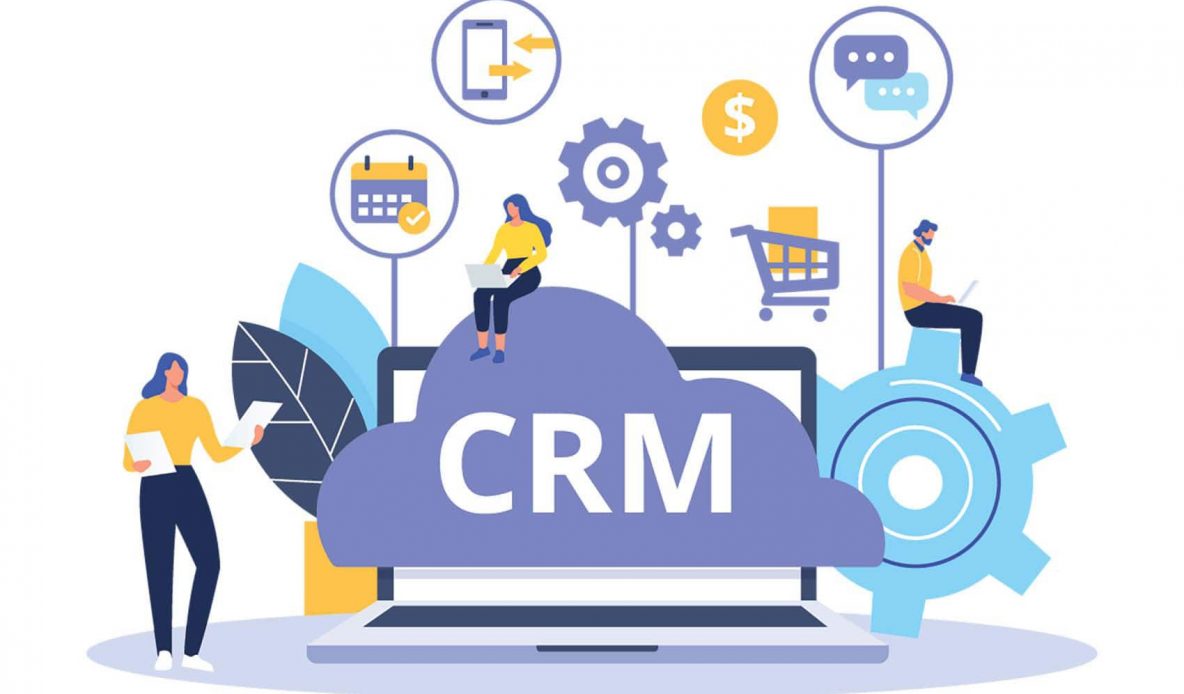
8 Things You Need to Know Before Running a CRM System for Your Small Business
Customer Relationship Management is a key business strategy for every business. Whether you are running a small business or a big corporation, if your business is not customer-centric, you will not succeed.
Luckily, nurturing customer relationships has become much easier with Customer Relationship Management software (CRM). Any business, big or small that wants to grow needs a CRM because it provides the following advantages, among others:
- Make intelligent use of data to attract, convert, and retain customers.
- Create campaigns that generate high ROI.
- Manage customer interactions across platforms and enhance customer satisfaction.
- Improve interdepartmental communication.
- Increase sales by improving the sales process.
- Enhance operational efficiency.
Since CRM offers so many advantages, it’s no surprise that businesses are adopting it at a fast rate. According to GetBase, 91% of companies with more than 11 employees are using a CRM in 2021.
Yet, there are mixed results.
Some companies are able to greatly increase their return on investment after including a CRM in their strategy, whereas others fail to inch up their sales by even 1%. Statistics show that an overwhelming 75% of companies fail to improve their growth or sales after implementing CRM, and some even end up suffering losses.
What is the reason behind this contrast? Why do some companies succeed while others fail after running a CRM system for their business?
There are two main reasons:
- Companies don’t choose a CRM that is designed to meet the unique needs of their business.
- Companies are unable to use and implement the CRM successfully.
To help you avoid these mistakes and make your CRM a success, here are eight things you need to know before you start using a CRM system in your small business.
1. Ensure Executive Sponsorship
If senior management isn’t invested in the CRM, it is bound to fail. Studies show that a lack of support from senior management is one of the main causes of CRM failure.
It is also extremely important that top management show their support and belief in the project via verbal and written communication. If top management doesn’t believe in the system, the effects will trickle down to the employees, and the chances of failure will increase.
Hence, you need to get senior management on board before running a CRM system. If employees see that executives are enthusiastic about the CRM, they will be more motivated to adopt the CRM and ensure its success.
2. Get a Project Manager
A project is bound to fail if it’s poorly executed, and for successful execution, you need a project manager.
Most companies try to adopt a CRM willy-nilly and end up losing money instead of making it. Therefore, before running a CRM, hire a project manager who will ensure that the project is executed impeccably.
A project manager ensures the success of a CRM by:
- Creating achievable CRM objectives.
- Creating a logical CRM strategy.
- Creating a well-thought-out project scope.
- Designing and implementing an agile project implementation method.
- Ensuring a smooth transition to the new CRM system.
- Troubleshooting problems.
A project manager is the leader of the ship; you cannot reach the shore without a captain, and similarly, you cannot run a CRM successfully without a project manager.
3. Create a Winning CRM Strategy
A well-planned CRM strategy is essential for project success. Your strategy should reflect the outcomes you want to achieve after implementing the CRM software. What do you want the software to do for you?
- Do you want it to improve your sales process?
- Do you want it to capture new customers or retain old ones?
- Do you want it to help you create personalized marketing campaigns?
- Do you want it to automate tasks and increase efficiency?
Your CRM strategy must clearly define and describe how your objectives will be achieved. It must define roles, responsibilities, and processes. Moreover, your CRM strategy should suit your industry and niche—a one-size-fits-all strategy doesn’t work for anyone. If you are in real estate, then get the best CRM for real estate and develop a strategy accordingly instead of going for generalized options.
4. Get a Tech Advisor for Your New CRM System
A tech advisor is not the same as your project manager. Rather, this is someone who knows all about your new CRM system. Specifically, they are CRM experts who have unique information about the way a CRM works. They are hired so they can teach employees how to use the CRM and get maximum use from it.
Hiring a tech expert will ensure that the management and employees:
- Have an understanding of how the CRM works.
- Know how to use its features to extract maximum utility.
- Know how to personalize the CRM.
- Know how to troubleshoot the CRM.
Moreover, the tech expert is also someone you can ask for advice before purchasing a CRM. They can make recommendations on which CRM will be best for your business. They can also test-drive your software and let you know if it’s the best fit for you.
Looking for experts to help you implement a CRM software system that drives results? The team at Lform Design has extensive expertise at getting the most out of your CRM tools. Contact us today to learn how we can help you!
5. Introduce Your CRM Software to Your Company
Once you have a project manager and a tech expert, it’s time to introduce the software to your employees. Ensure a smooth and efficient introduction so employees are motivated to adopt the new tool.
Humans are creatures of habit, and they don’t like change. If not introduced correctly, a CRM will fail simply because employees refused to adopt it. So implement effective change management strategies to motivate employees to learn and adopt the new software with ease.
6. Introduce Common Guidelines for Your CRM System
It’s important to give CRM users some common guidelines to follow when they are using the system. All the success lies in how efficiently a company and its employees are using the software.
So here are a few basic things that might need guidelines:
- How to put new data into the CRM system.
- How to retrieve old data from the system.
- How to track sales and check progress through the sales pipeline.
- How to send marketing emails to customers.
- How to maintain a relationship with customers.
7. Ensure Employee Training
This is the most crucial step toward the implementation of new CRM software. If your employees are not willing to adapt to a new system, you might have a major problem in your hands.
Did you know around 82 % of the salespeople cited CRM tools as “critical”? Why? Because it came in the way of closing sales deals.
This is why these training sessions help your employees understand why they need the change, how it will help, and how they will use it. The number-one thing is to make sure your employees reach out to the project manager or the tech person if they can’t do things or get stuck with the new system.
8. Listen to Feedback
It is only understandable that you will face a few rejections over the new CRM implementation. Not everyone is going to be so receptive. So, this means your project manager needs to have a strategy to handle these employees as well.
For example, the project manager can sit with the employee and try to understand what problem they are facing that is causing this rejection. A talk always helps. A review will also enable the project manager to understand the key strengths and weaknesses of the new system in their company and act accordingly.
You’re Ready to Run a CRM System for Your Small Business
Every CRM project contains the risk of failure—the only way to ensure that a project doesn’t fail is to manage these risks through careful planning and preemptive measures. The above-mentioned eight points, from ensuring executive sponsorship to listening to feedback, are geared toward minimizing risk. Adopting these techniques will help you ensure CRM success.



